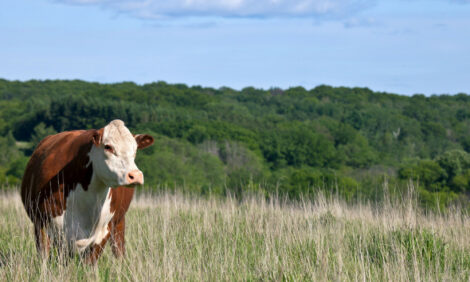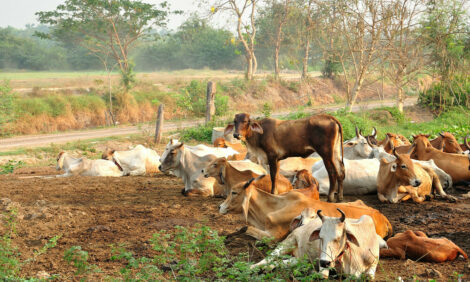



Scientist Discovers a New Piece to Fertility Jigsaw
NEW ZEALAND - After examining more than 20,000 genes, a DairyNZ scientist has discovered why some cows are more fertile than others. DairyNZ scientist Caroline Walker has discovered there are about 1,500 genes affecting the uterus that are altered in pregnant cows.
The results of her research “Endometrial gene expression during early pregnancy differs between fertile and sub-fertile dairy cow strains” have been published in the international journal Physiological Genomics.s
“This is ground-breaking research published in a highly-regarded international journal,” says DairyNZ Principal Scientist – Animals, Dr John Roche.
“This gives us a greater understanding of the reasons for sub-fertility, and puts us in a better position to discover gene markers that will produce bulls that give greater fertility. It’s essentially enabled us to narrow down what we’re looking for.”
The work, which Caroline has been doing for the last three years as part of her PhD, involved looking at differences in the expression of key genes in the uterus in pregnant and non-pregnant cows.
She studied two different strains of cows – US Holsteins and NZ Holsteins. Work done by DairyNZ scientists over the last decade confirmed that US-type dairy cows were less likely to get pregnant in the New Zealand pasture-based system.
“We already knew that the New Zealand cow is better at establishing pregnancy. Conception rates are 50-60 per cent for New Zealand cows, compared with approximately 40 per cent for US cows.
“Caroline’s work has shown us some of the reasons why – basically the New Zealand cow is better at establishing pregnancy, and now she’s identified some of the genes which determine this. The next step is to look at epigenetic changes, which are things that happen to alter the expression of genes,” says Dr Roche.
“It’s extremely exciting work because understanding the underlying physiology has great implications for improving the fertility of the national herd.”
The work is funded by dairy farmers through the DairyNZ levy, and also by the Ministry of Science and Innovation, and has been done in collaboration with the Liggins Institute at Auckland University.
TheCattleSite News Desk


